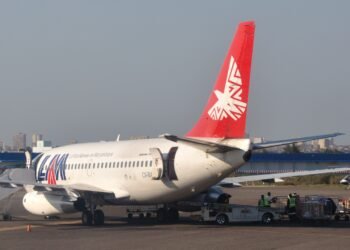experiences, can be achieved without necessarily adding the single supplement,” Wilderness Public Relations Manager, Nicky Bouwers stated. Wilderness’ high standards of operation provide all visitors an opportunity to enjoy the African safari experience.
In addition to Wilderness, numerous other operators like AndBeyond, also famous for its safaris across various parts of South Africa, Tanzania and Kenya, have started to review their solo traveller strategy. They believe that there is considerable potential in the market. A spokesperson for AndBeyond, commented, “Our team is looking at pioneering new ways to make safaris more affordable for solo travellers by potentially removing or reducing single supplement charges.”
“Travel trends suggest solo travel is on the rise and we are keen to maximise its potential. To do so, we need to remove the financial deterrents currently associated with solo travel”, said. Chris Roche, the Managing Director of the group which operates lodges in Kenya, Tanzania and Zanzibar, also echoed the sentiment on removing this fee.
The safari industry has traditionally been aimed at couples and small groups, but as the solo travel market grows, the industry is adapting accordingly. Lodge owners and travel specialists of Africa are now focusing on ways to cater to those travelling solo.
Africa Travel Association, dedicated to promoting the African continent globally, also highlighted the growing attraction towards safari travel in Africa in its latest report. The report noted, “The rising trend of solo travel, particularly among millennials, is driving a shift in the African safari industry.”
Tony Wheeler, co-founder of Lonely Planet, an influential travel guide book publisher, too stressed that Africa was an untapped market. The increasing freedom and flexibility of solo travel could dramatically increase the demand for African safaris in future.
Although a variety of different lodges and safari operators are working towards reducing or eliminating single supplement fees, travellers should be aware that in some cases they may still apply. These include high season travel or when demand is significantly high.
The shift, while in favour of solo travellers, could also encourage community-based tourism, bringing more economic benefits to local communities and contributing to conservation efforts, besides attracting more tourists to Africa.
It appears this could be a pivotal change for the African safari industry with the potential for positive implications if executed effectively; such as turning Africa into one of the world’s most attractive tourism destinations.
While the focus on making safaris more affordable for solo travellers is growing, it reciprocates with Africa’s quest to become a prominent and accessible destination for global travellers. With the removal of single supplements, solo travellers will get to experience the wonders of Africa without having to worry about the extra financial burden.
As the trend of solo travel continues to grow, the African safari industry and the continent as a whole stand to benefit greatly. The prospect of attracting tourists who would otherwise opt for different destinations due to cost restrictions, could greatly enhance the potential for increased tourism revenue and boost Africa’s status on the global tourism map.
While there’s widespread consensus that solo travellers are a market that is worth targeting for African safaris, the implementation of eliminating or reducing the single supplement charge still requires careful strategizing and planning.
Ultimately, the change may require the reconfiguration of the industry’s business model, but the potential benefits to both travellers and the wider African economy would be substantial. It’s an exciting evolution in tourism that’s geared to benefit the traveller and ultimately the industry and continent.
In conclusion, as solo travel continues to rise in popularity, Africa’s safari lodges are reevaluating their policies and considering removing the extra charges for single travellers. This movement has a huge potential to turn Africa into a must-visit destination for solo travellers worldwide, boost the local economy and contribute to wildlife conservation efforts. The impact could be far-reaching and transformative for the African tourism industry.






